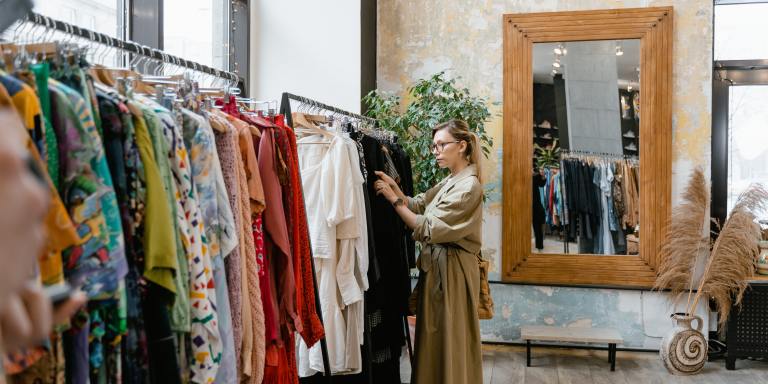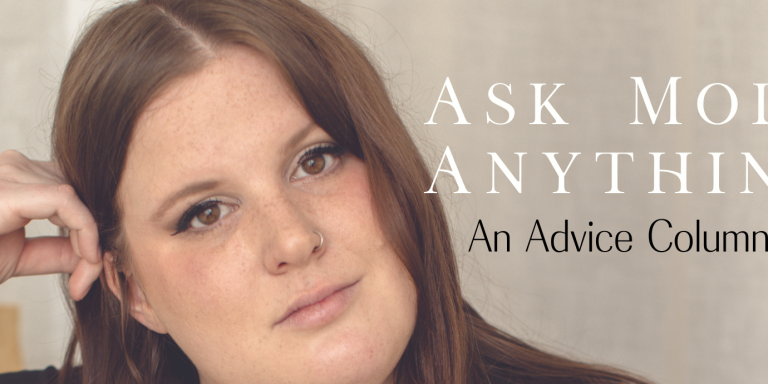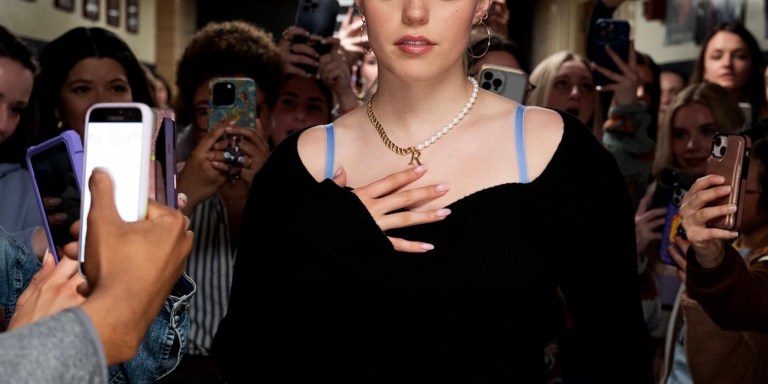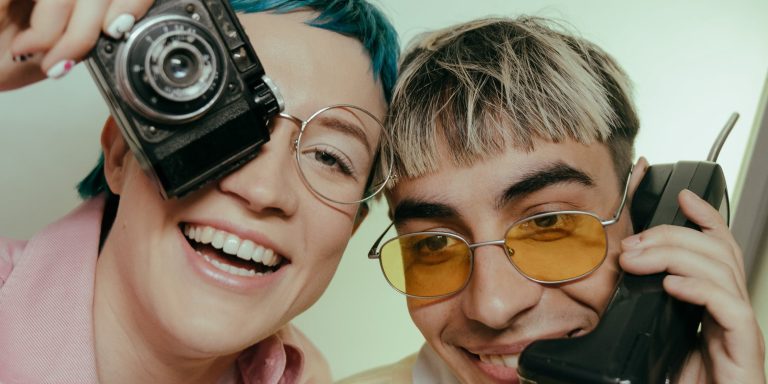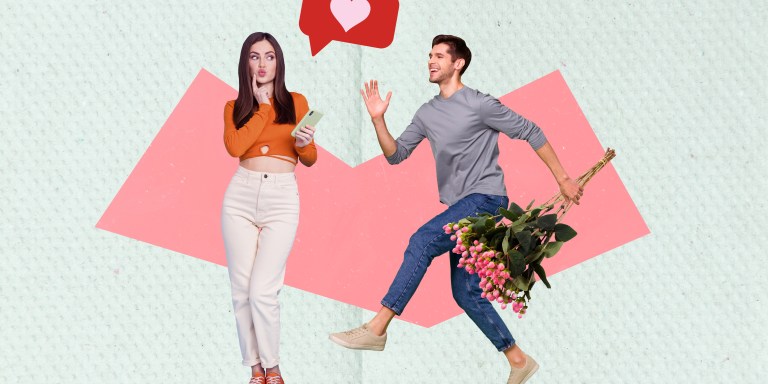I scrolled through Facebook at lunch on Tuesday and was instantly overwhelmed by the influx of red equal signs smattered across my Newsfeed. I decided not to change my profile picture because Sonia Sotomayor recently unfriended me (typical falling out drama), but I do appreciate the overwhelming support for marriage equality from the fraction of the world — gay, straight, and everywhere in-between — I’m Facebook friends with.
 However, with every few pictures of red equal signs came a post or shared photo like the one to the right. Posters like this remind me of the pink triangle pins so many of my college classmates brandished on their backpacks. The pins read, “Straight But Not Narrow,” a means of typifying oneself as a straight ally to LGBTQ students. As I did at the time, I still understand my friends’ reasoning for wearing the pin: equal rights will come more quickly with visible widespread support from the straight majority. Fair, and very well-intentioned. And the underdogs always need a little boost, right?
However, with every few pictures of red equal signs came a post or shared photo like the one to the right. Posters like this remind me of the pink triangle pins so many of my college classmates brandished on their backpacks. The pins read, “Straight But Not Narrow,” a means of typifying oneself as a straight ally to LGBTQ students. As I did at the time, I still understand my friends’ reasoning for wearing the pin: equal rights will come more quickly with visible widespread support from the straight majority. Fair, and very well-intentioned. And the underdogs always need a little boost, right?
But in sharing your personal support for marriage equality, why must you tell me you’re straight? Why can’t you just say, “I support marriage equality,” and leave it at that?
Know this, Straight Ally: whenever I see, “I’m a straight person who just supports LOVE!!!” I read, “Well, my friends are gay, but I don’t want people to think I’m gay. God forbid. I just want to get some [genitalia of the opposite gender]!” Getting ass is easier if your peers know what you’re looking for, I guess. And don’t get me wrong, I respect your right to express your sexual identity. But, believe it or not, inserting your straightness in the frame of gay rights ultimately hurts the LGBTQ cause. “Straight But Not Narrow” essentially adds #nohomo to the gay crusade for equality.
Think about it. Are you really scared your Facebook friends are going to think you’re a homo when you make your profile picture a red mathematical symbol? Will your Aunt Mindy spend next Thanksgiving interrogating you about your sex life? Will your doucheface fraternity brother write “lol faggottttt” on your wall? Will your weird ex-friend from middle school message you, “ha ha always knew ur a dyke” and tell you you’re going to Hell?
Yeah, something like that could potentially happen. And so what if it does?
Allying with the queer community means embracing the endless combinations and permutations of sexuality, orientation, and gender expression human beings experience. Being comfortable with this idea means being comfortable with the reality that some people – gasp — might think you’re gay.
You may be thinking, “But I don’t want acquaintances to assume things about my sexuality when they barely know me! That’s totally unfair!” Straight Ally, welcome to the queer experience.
Though my gayness is obvious to queer girls, I’m forced to constantly wonder if acquaintances know I’m gay, if they suspect it, and precisely how I sparked said suspicion. Upon discovering I’m gay, a coworker told me, “You do wear pants a lot. More than most girls.” (Astute observation, bro.) On that note, guys do occasionally hit on me at bars, and only when I’m in a dress. I, like many queer people, routinely fumble with self-expression of my orientation. It’s quotidian, really.
So, Straight Ally, when you tell me you’re, “Straight but not narrow,” you tell me you’re too scared to embrace the ambiguity that has defined my personal experience as a lesbian. In doing so, you explicitly unfasten any empathy for the queer community you attempt to cultivate in so bravely making your profile picture a red equal sign.
This unintentional narrow-mindedness certainly flourishes within pockets of the LGBTQ community, as well. This weekend, an overweight, intoxicated 35-year-old gay man told me, “Oh my God, I love pretty lesbians!” In this case, “pretty” meant “feminine.” (I think I was wearing a necklace or something? He clearly had never witnessed me attempt to walk in heels or go H.A.M. on steak frites.) He then proceeded to prod a Republican friend of mine about her political beliefs, explaining, “I’m sorry to pick a fight, I’m just really committed to gay politics.”
While he meant to flatter me, his “pretty lesbians” comment merely crippled the progressive ideology he allegedly stood for. You only like “pretty” lesbians? I thought. You mean, femmes? This eliminates a pronounced community of queer women who thrive in blurring lines of expression (and are total smokeshows doing so). Only liking “pretty lesbians,” strengthens the gender dichotomy and effectively harms the entire queer community. I don’t care how much that dude loved cock; a commitment to equality means a commitment to flexibility in expression. (I wish I could have communicated this to him in the moment. Instead, I just said, “Me, too.”)
Because your intentions are good, Straight Ally, this flexibility can extend to you for a rare moment. I understand your inability to fully comprehend how queer people navigate society; no one can help this. However, you can tiptoe toward empathy by feeling a pang of discomfort when acquaintances make false assumptions about your sexuality. Feel awkward and make it routine. Don’t just tolerate queer people fucking with normativity; blur the line from your own side, too. This certainly doesn’t make you queer, Straight Ally, but it allows you to share some ambiguity with those whose fight you choose to support. After all, if being gay “isn’t a big deal,” shouldn’t you be comfortable with your own LGBTQ potential?
Yes, omitting your personal sexual preference when you choose to support gay marriage via Facebook profile picture may turn a couple of heads. But know that when your homeschooled cousin texts you, “WTF u like pussy now???” and you don’t respond, you’re taking a teeny little step toward that vague, distant vista of equality we so avidly chase. 
